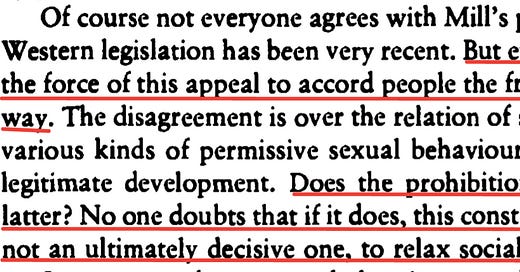Kyborg 24: SOS8
Identity
In yesterday’s essay, I introduced the idea that the self is in a dialectical relationship with society/state, that the two shape each other as they unfold. One theme that cuts across the dialectical divide is that of identity, i.e., answers to questions such as “Who am I/we?” and “What keeps us the same over time?”
All of us assume we are the same person from the time we are born to the day we die, but what constitutes our sameness? What guarantees invariance from one day to the next? And how can I change (grow older, hair turning white) while still remaining the same? How can both change and statis be simultaneously true?
Here I take the view that change is unavoidable. As beings embedded in Deshkaal, we can never step into the same river twice - and yet, that river is the same.
National Identity
It’s very easy to fall into the trap of thinking terms like “India” refer to an eternal, unchanging entity. Of course there’s continuity, but there’s also dramatic change. With the possible exception of China, no premodern political unit can be called a ‘nation state’ in the modern sense of that term.
This book by Mark Elvin gives an answer to why China might be an exception to that rule.
However, the range of transformations that led to the modern nation: literacy and news technologies, data on populations, shift to rule based bureaucratic rule etc only came together in the modern era.
Not that the premodern was entirely different: Akbar’s institution of the Mansabdari system (in which the Mansabdars were rotated throughout the Mughal empire and not allowed to inherit their roles) is certainly a form of bureaucratic organization. However, the impulse to institute the Mansabdar system wasn’t because Descartes’ soul transmigrated into Akbar’s body, but because the young emperor wanted to prevent his nobles from settling down and creating an independent power base that could revolt against his regime. Which suggests two equal and (somewhat) opposite truths:
Social institutions that appear ‘natural,’ ‘obvious’ and ‘rational’ after the fact might yet emerge from specific needs of power, i.e., by happenstance rather than the working out of universal reason.
The logic of power operates in every Deshkaal. Smart rulers and upstarts will take advantages of whatever technologies and forms of organization available at a given time and place to increase their chances of getting into power and retaining it once they’re on top.
The Self as Identity
The self, like the state, has a history. It’s only in the modern era that ‘autonomy’ became one of the defining features of the self and once that happens, there’s an explosion of identities, for it becomes possible to print identities on demand. I may identify myself as a comic fan, spending enormous amounts of money on books, cosplay and comicons. That ability to invent new identities and to create attentional communities around them (here’s a quick refresher on attentional communities from the first week of this series) is central to our era.
That freedom to develop one’s self leads to tensions - the debate between free speech and its limits and the banning of hate speech is a common one. However, the claim is that we would rather preserve and expand autonomy than to curb it.
You might think autonomy is incompatible with power, and libertarian and anarchist movements make a powerful case for the dismantling of all power relations, but the actual history of our times shows that power is liquid and adaptable enough to transform itself (and become more powerful) in the age of autonomy.
First, autonomous people who voluntarily choose to enlist in an army or work for a government have much greater commitment - and a subset of them can be trained as an elite corps without worry that they might revolt against the emperor- than the older style of feudal military relations. Napoleon’s successes after the French revolution being a great example.
No wonder that the two most important mechanisms for ordering our lives - the market and the state - have spread throughout the world, so that practically every human being resides in a nation state (actually, who doesn’t?) and almost every human being lives in a market society. The standard model of human existence is that of autonomous beings trading with each other or binding each other in a social contract.
Second, the proliferation of identities in the era of autonomy actually gives that many more targets for power to infiltrate. If there were no comicons, there would be no recruitment drives that emphasize the superpower nature of the modern military technologies.
Both the autonomous person and the collective people are joint products of the forces of the modern era. The first is the identity appropriate to the self and the second is the identity appropriate to society.
Power flows through the entire spectrum and leads to a strange contradiction: that societies experiencing freedoms and autonomy no one had experienced before also saw their lives being regulated at a depth and scale no one had seen before. Free labor supporting the strictest factory line is a deep contradiction but also lived reality.





